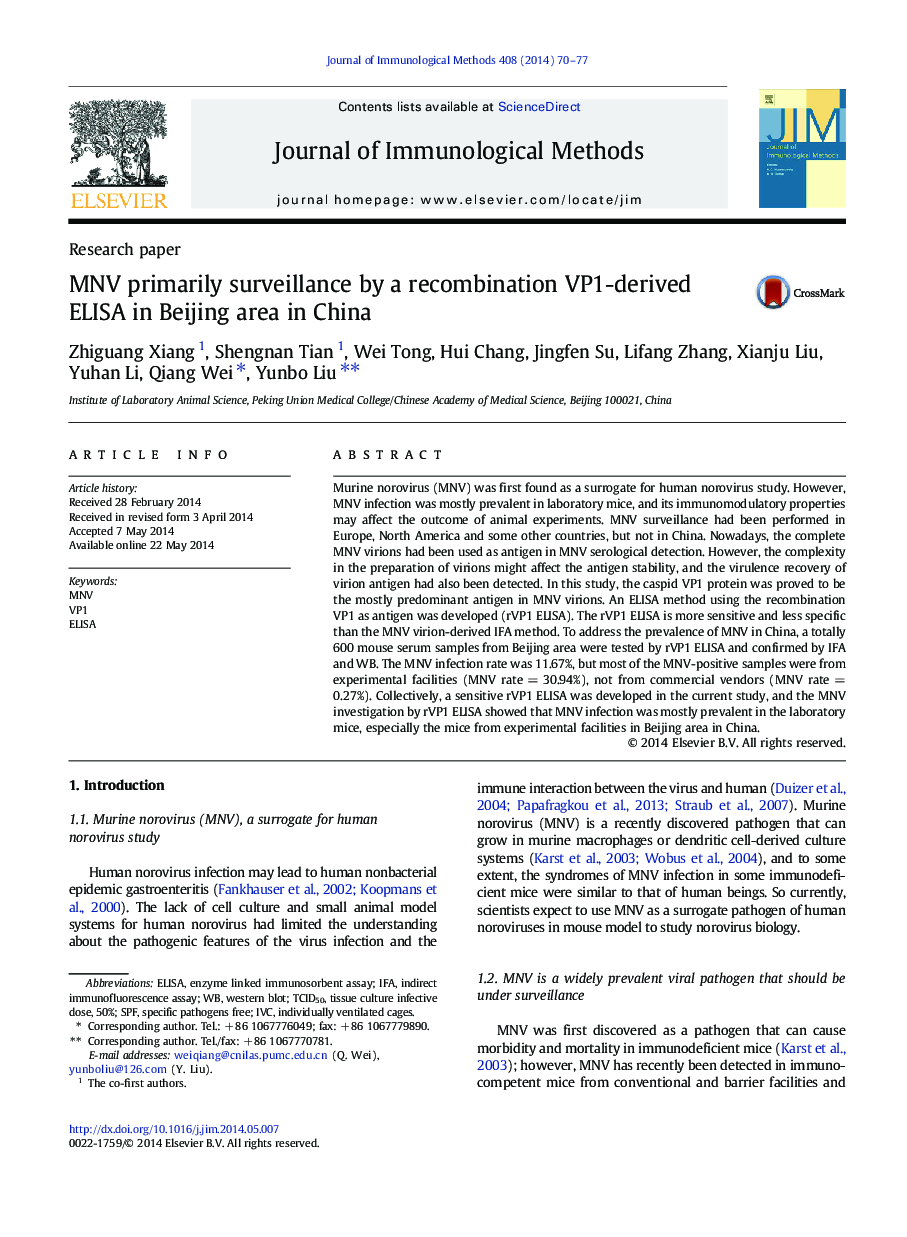| Article ID | Journal | Published Year | Pages | File Type |
|---|---|---|---|---|
| 2088190 | Journal of Immunological Methods | 2014 | 8 Pages |
Murine norovirus (MNV) was first found as a surrogate for human norovirus study. However, MNV infection was mostly prevalent in laboratory mice, and its immunomodulatory properties may affect the outcome of animal experiments. MNV surveillance had been performed in Europe, North America and some other countries, but not in China. Nowadays, the complete MNV virions had been used as antigen in MNV serological detection. However, the complexity in the preparation of virions might affect the antigen stability, and the virulence recovery of virion antigen had also been detected. In this study, the caspid VP1 protein was proved to be the mostly predominant antigen in MNV virions. An ELISA method using the recombination VP1 as antigen was developed (rVP1 ELISA). The rVP1 ELISA is more sensitive and less specific than the MNV virion-derived IFA method. To address the prevalence of MNV in China, a totally 600 mouse serum samples from Beijing area were tested by rVP1 ELISA and confirmed by IFA and WB. The MNV infection rate was 11.67%, but most of the MNV-positive samples were from experimental facilities (MNV rate = 30.94%), not from commercial vendors (MNV rate = 0.27%). Collectively, a sensitive rVP1 ELISA was developed in the current study, and the MNV investigation by rVP1 ELISA showed that MNV infection was mostly prevalent in the laboratory mice, especially the mice from experimental facilities in Beijing area in China.
